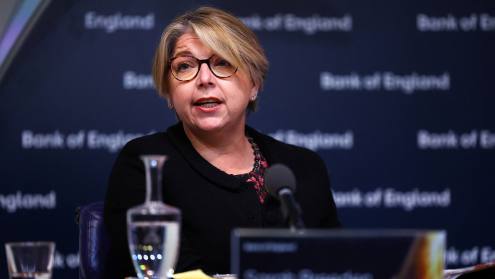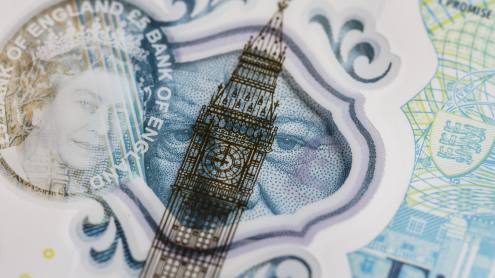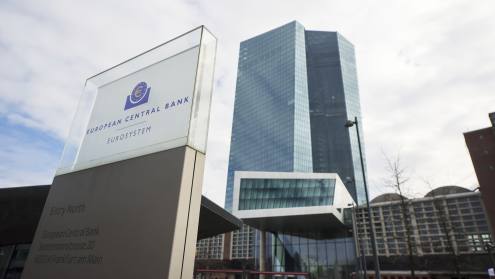Climate change poses a “grave and growing threat to the financial system and macroeconomic stability”, wrote think tanks, academics and the CEO of sustainable bank Triodos in an open letter sent last week to Andrew Bailey, governor of the Bank of England (BoE), and Sam Woods, CEO of the Prudential Regulation Authority (PRA). They called on the BoE to take concrete steps to reduce climate-related risk.
The letter says the BoE can help mitigate risk by increasing capital requirements on the most climate-risky activities and assets to “break the finance-climate doom loop in which financial activities continue to fuel climate change and in turn increase risks to the financial system”.
Led by the New Economics Foundation, a UK think tank, the letter was sent to the BoE and the PRA ahead of the climate and capital conference they jointly hosted.
Failure by the UK central bank to address activities like fossil fuel production and exploration that contribute directly to climate change will create physical risks “leaving the financial system exposed to significant losses via direct balance sheet losses and indirect losses stemming from environmental damages to the wider economy”, says the letter.
As the move to a net-zero economy picks up pace, fossil fuel assets will decline in value and become “stranded”, state the signatories. These “transition risks” will “undermine the UK’s financial stability”, they warn.
Banks can help create an “orderly transition” and ensure financial stability, insists the signatories. The BoE and the PRA can lead the way by using the ongoing review of the capital framework by the Basel Committee on Banking Supervision to better account for climate-related financial risks and adopt a “prudent, precautionary approach”.
A solution in two parts
The signatories of the letter propose a two-step solution.
First, they suggest the introduction of a “one for one” rule, where each pound of financing for fossil fuel activities is matched with one pound of a lender’s own funds. The Intergovernmental Panel on Climate Change and the International Energy Agency have said that no new fossil fuel exploration is compatible with the goals of the Paris Agreement.
As fossil fuel assets “will fall in value, potentially to zero, banks should hold more capital to guard against default risks of lending to new fossil fuel projects”, according to the letter.
banks pose a micro-economic threat to themselves and a macro-economic threat to the system
Second, it proposes that capital requirements for exposures to existing assets associated with fossil fuel production be adjusted to factor in climate risk. Research published this month by Finance Watch, a Brussels-based non-governmental organisation, estimated that five of the UK’s largest banks – HSBC, Barclays, Lloyds Bank, NatWest and Standard Chartered – have £71.6bn of fossil fuel exposures on their balance sheets.
This figure is equivalent to 1.22% of their total assets, compared with 1.05% on average in the EU and a global average of 1.47%, stated the report. US banks’ exposure to fossil fuels was found to be similar to that of the UK banks.
A danger to themselves
“The whole global financial system is extraordinarily fragile,” says economist Ann Pettifor, one of the signatories of the letter, citing the “massive disturbance” caused by Liz Truss’s “mini” Budget during her short-stint as UK prime minister. In this context, “banks are playing with fire by financing fossil fuels”.
Ms Pettifor compares the lack of attention to climate risk by high street banks and the broader financial ecosystem to children playing with matches. “They are a danger to themselves and to others,” she says. “The banks pose a micro-economic threat to themselves and a macro-economic threat to the system.”
She says she felt “quite positive” the BoE would consider the proposals made in the letter, but cautioned that any changes would require buy-in from the Treasury, which she suggests has been “notoriously anti” such measures.
It remains to be seen how Jeremy Hunt, the recently appointed UK chancellor of the exchequer, who was given the position by former prime minister Liz Truss and retained by her successor Rishi Sunak, performs on net zero.
Mr Sunak has a mixed record at the Treasury on green issues: it was under his leadership that the Treasury completed its net-zero review and at COP26 he pledged to make the UK the “world’s first net-zero financial centre” and to contribute to global efforts to “rewire the financial system for net zero”.
During meetings with energy companies in Scotland in June, however, Mr Sunak reportedly promised he would ensure that capital for oil and gas projects continued to flow. As a member of the Conservative Environment Network, Mr Hunt may be more in tune with the need for urgent climate action than his boss.
The BoE said it did not have any comment to make on the letter, but The Banker understands it was used as input for the climate and capital conference. The central bank will publish a report on the conclusions of the conference before the end of the year.












